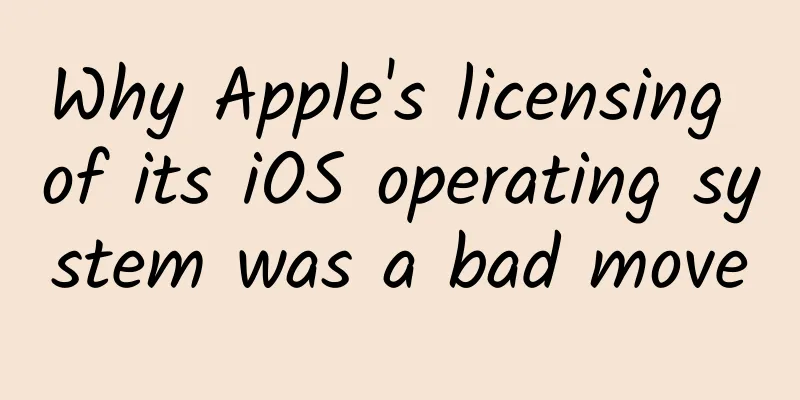Stop blindly following internet celebrities to learn how to resist sugar. Do you really understand glycation?

|
A famous actress gave up sugar for ten years and gained beautiful skin without eating a single bite of sugar; an Australian director used himself as a test subject, eating high-sugar food every day for two months, and recorded his body changes to make a documentary reflecting the threat of sugar to human health, which is shocking. The trend of quitting sugar and resisting sugar has been stirring among the people for several years. In recent years, driven by some celebrities and internet celebrities, many people have witnessed the miraculous effect of resisting sugar, and prejudice against sugar has also mushroomed. The concept of "resisting sugar" has also quietly completed the semantic transformation, from the original professional term for treating diabetes to the abbreviation of "anti-glycation" in daily life. In this verbal attack on the harm of sugar, anti-sugar has not only become a symbol of weight loss and fat reduction, a healthy lifestyle, but also seems to be the only way to maintain a beautiful face and resist aging. For a while, people are willing to pay for anti-sugar recipes and anti-sugar products. So is sugar really a "health killer"? Is it really effective to quit sugar to prevent skin aging? Is anti-sugar a necessary tempering on the road to health, or a false proposition of overcorrection? How can we control sugar correctly? Let's take a look. 1. Is sugar really a health killer? The Dietary Guidelines for Chinese Residents recommends that the daily intake of added sugars should not exceed 50 grams, and it is best to control it within 25 grams). However, if we really add up the sugar content of all the food we eat in a day, we may have eaten far more sugar than the recommended intake without knowing it. The dangers of excessive sugar intake are already a commonplace: obesity, tooth decay, diabetes, heart disease, emotional instability, accelerated aging... This is not only a consensus among the general public, but also the result of countless authoritative data tests - a high-sugar diet is an important factor that affects physical health and causes body aging. All the "anti-sugar" articles on the Internet like to use the comparison between raw meat and braised pork as a visual evidence of "glycation". The Medela reaction formed by the collision of sugar and protein on the shiny reddish-brown surface of braised pork is produced at a high temperature of at least 140 degrees Celsius. Although it is almost impossible for the human body to produce such a degree of glycation, we still cannot ignore the harm caused by glycation to the skin. But we cannot generalize glycation, not all glycation is harmful to the human body. The "glycation" reaction of the human body can be divided into two types: one is glycosylation, that is, under the action of enzymes, sugars combine with proteins to generate glycoproteins required for life activities. This type of protein participates in the development, differentiation and metabolism of normal cells, has an important immune effect on the human body, can help the human body resist bacteria, and has functions such as blood coagulation and wound repair, which is necessary for the human body. However, when excessive sugar is consumed, the body will undergo a second "glycation" reaction: non-enzymatic glycation, that is, excessive sugar directly binds to protein without the action of enzymes. Advanced glycation end products generated by non-enzymatic glycation reactions are referred to as AGEs (Advanced Glycation End Products). AGEs continue to accumulate in the body, causing the collagen in the skin, which "mainly plays a role in filling and plumping" and elastin, which "plays a role in maintaining skin elasticity", to cross-link and degrade, making it difficult to maintain the internal structure of the protein, resulting in reduced fullness and elastic tension, which causes the skin to turn yellow, wrinkled, loose and dull. This is what we usually call a "skin killer." There are many factors that affect skin aging, and sugar is not a scourge to the skin. In addition to non-enzymatic glycation, free radical oxidation and photoaging are also important factors in skin aging. Therefore, to prevent skin aging, it is not just a matter of anti-sugar. What we need to pay more attention to is the organic combination of sun protection, anti-oxidation, and anti-sugar, so as to achieve a better anti-skin aging effect. 2. How much sugar should you consume? The 2021 Chinese National Dietary Guidelines recommend that the daily intake of added sugar should not exceed 50g, preferably less than 25g. And a 330ml bottle of cola contains 37.5g of sugar. As a result, some unscrupulous merchants have begun to use anti-sugar to develop various business opportunities: anti-sugar pills, anti-sugar masks, etc., one after another. At first glance, it seems to make sense, but think about it, isn't it enough to drink less milk tea and eat less sweets? Why bother with all this? Moreover, according to this inference, the sugar content of 330g coarse grain rice is 75g, the sugar content of 330g whole wheat bread is 120g, and the sugar content of 330g nutritious cereal is 200g. If drinking one more sip of cola every day exceeds the prescribed sugar intake, then eating one more bite of cereal every day is not sure how serious it is, which is obviously unreasonable. So, what exactly does the recommended added sugar intake in the guidelines refer to? Is it the sugar added when cooking? Or is it the sugar written in the product ingredient list? —— Actually, it is not. The guidelines actually recommend that we should not eat more sugar if we eat three meals a day normally. If you want to look at it, it is more accurate to look at the carbohydrates in the ingredient list, which should account for about 50% or less of our total dietary energy. Combined with one's own BMI "weight (kg) / height squared (m2)", it is recommended that friends with a BMI between 18.5 and 24 should not consume more than 250g of carbohydrates per day; those between 24 and 27.9 should not consume more than 200g of carbohydrates per day; and friends with a BMI greater than 28 should consume less than 150g of carbohydrates per day. Friends with a BMI below 18.5 should just gain weight, and don't think about controlling sugar intake to lose weight. Here we also want to remind everyone not to blindly control sugar intake to lose weight. Carbohydrates are important functional substances in the human body. Extreme and severe deficiency can lead to hypoglycemia, coma, ketoacidosis, and liver damage. Obesity is caused by excess calories, and more of it is caused by exogenous fried foods. Relying solely on controlling sugar intake without reducing calorie intake is only half the effort with twice the results. Therefore, reasonable control of carbohydrate intake is the key to controlling sugar intake. 3. How to control blood sugar in a healthy way? The idea that sugar is addictive has also been widely circulated on the Internet. It is said that eating sugar can make the brain secrete dopamine, making you dependent on it. But in fact, people's dependence on carbohydrates should be much stronger than their dependence on sugar. It goes without saying that not eating carbohydrates is more painful than not eating sugar for a day. Therefore, it is better to say that it is controlling carbohydrates than controlling sugar. The following are some tips for controlling carbohydrates. 1. Extend the time of eating. It is recommended to control the eating time to 20-30 minutes. The feeling of being full is determined by the blood sugar level, and the blood sugar content will reach a peak 30-60 minutes after a meal. If you eat too fast, the blood sugar level has not risen yet, and you will not feel full. In this way, you will only feel hungry and full, but not full. 2. Choose foods with low GL (glycemic load = GI × carbohydrate content per 100g/100). GL can reflect the amount of blood sugar that will rise for every 100g of food consumed. 3. Eat some low-sugar or sugar-substitute foods in moderation. For foods such as milk tea and fruit tea, sugar-free means that no extra sugar is added except for the carbon water in the food itself. It is impossible to be truly sugar-free. Sugar substitute products do not contain sugar, and their sweetness comes from sweeteners (such as aspartame, acesulfame potassium, sucralose, etc.). Although the same amount of sweeteners and sugar have the same calories, only a small amount of sweeteners is needed to achieve a very sweet effect, so it has fewer calories. Sweeteners do not affect blood sugar concentrations, so diabetic patients can also eat them. But for safety reasons, diabetic patients should not consume too many sweeteners. And patients with phenylketonuria cannot eat products containing aspartame. The decomposition products of aspartame contain phenylalanine, which patients cannot handle. The daily intake of aspartame for normal people should not exceed 40~50mg/kg. IV. Conclusion Finally, whether it is weight loss or skin care, we should control sugar scientifically. Health and happiness are the foundation of everything. Being happy is the most important thing. We don’t want to ignore our health in order to achieve our goals. |
<<: Aging doesn’t just show up on your face! If you have these 10 signs, you’re getting older…
>>: A pair of "wise eyes" to identify sand and dust
Recommend
Keywords in the 4G virtual operator era: opportunities and challenges coexist
Introduction: In 2014, the 4G industry developed ...
A chart to understand the gender ratio of Silicon Valley technology companies
Until recently, gender and racial diversity data ...
iPhone 6 teardown analysis shows minimum production cost is $200
According to a disassembly analysis by market res...
8 promotion and monetization techniques, which one do you pick?
Today I will share with you the 8 most common mon...
O2O transforms traditional service industry in many ways, taking hairdressing as an example
The hairdressing industry is a basic need for mos...
Community operation: How can community fission activities achieve high conversion rates?
How can a social fission activity achieve a high ...
Why don’t you post on WeChat Moments anymore?
It’s not that Moments is not useful anymore, it’s...
Testin Cloud Testing and Chukong Strategic Cooperation: Helping North American Developers Improve Game Quality
Testin, the world's largest real-device cloud...
A box costs more than 400 yuan, and one dose lasts for 5 days? The new "magic flu drug" Mabaloxavir is popular, and doctors warn
The proportion of influenza A has just dropped, a...
When disaster strikes, how can integrated air-space-ground-in-space emergency communications become a "guardian angel" that never loses connection?
my country has a vast territory and complex and d...
HPV vaccine is trending again! What is the best price? Can I get vaccinated if I'm already infected with HPV? Here's a complete guide!
Today, #Experts say you don't have to worry a...
Broken bones by a leaf? Leaves in the south are really hard to deal with...
recently Mr. Liu from Jieyang, Guangdong By a fal...
Too dangerous! A group of people were having a barbecue and suddenly it exploded! The reason was actually related to the ground
Oysters, beef cubes, pork belly Chicken legs, pal...
The smart hardware market for the elderly needs to be driven by innovative manufacturers
The smart hardware industry is flourishing with a...
Young stroke, how far are we from it?
Author: He Yanbo, deputy chief physician of Beiji...









